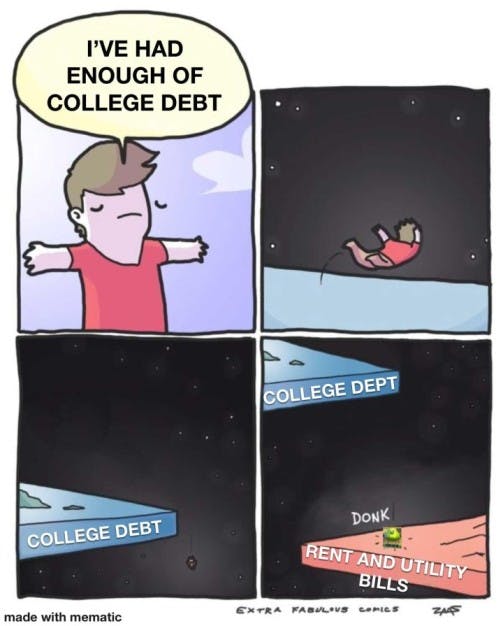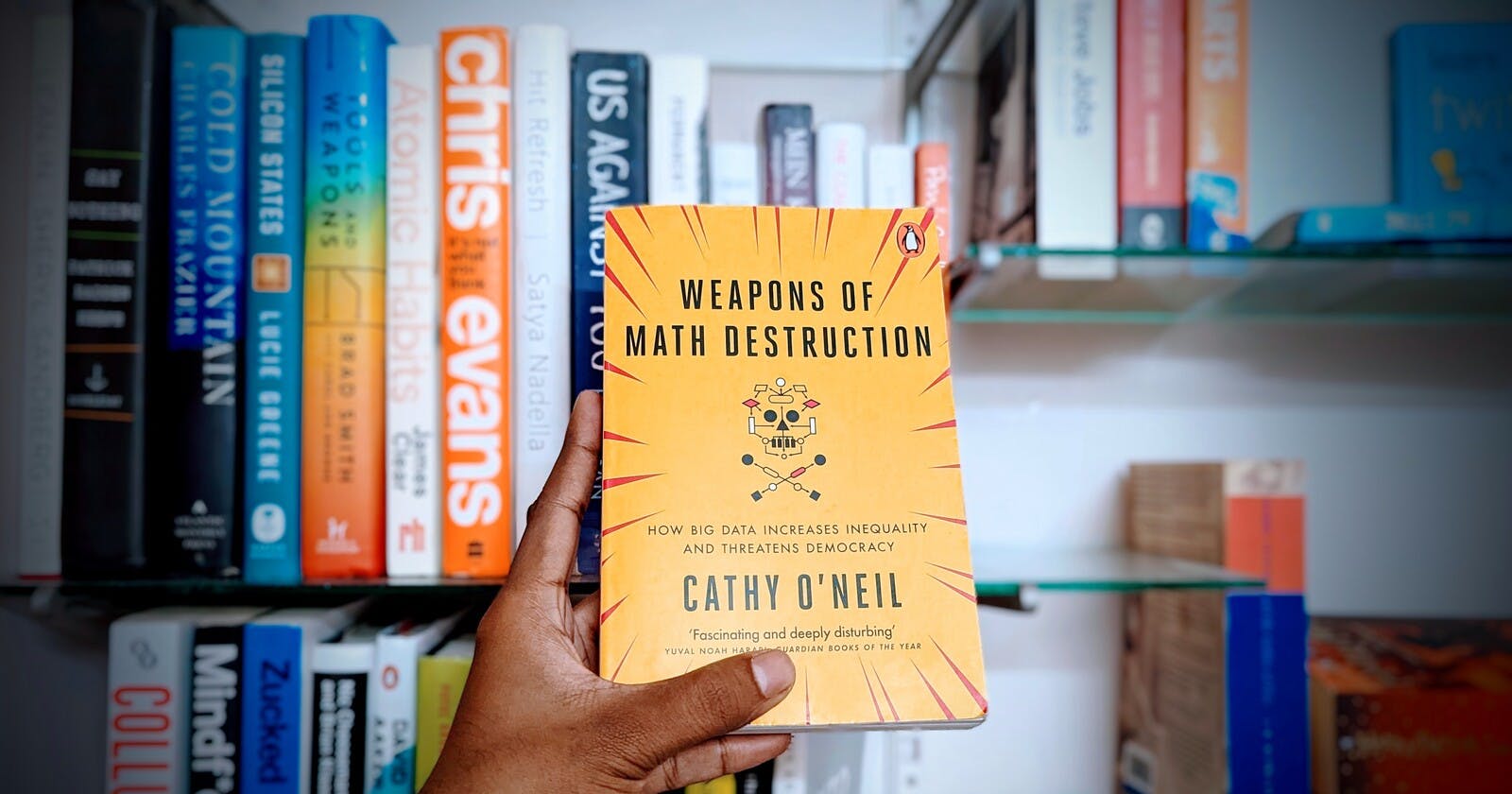I love reading Non-Fiction books. I love reading non-fiction because they are more about reality or a person's experience throughout their lifetime. You get to learn a lot. Why am I telling you this? Well, have you seen those youtube videos titled "books to read before you die"? This book is one of them!! "Weapons of Math Destruction".
Yuval Noah Harari( the author of Sapiens: A Brief History of Humankind ) termed this book as, "Fascinating and deeply disturbing" (see the cover page), and I agree with him. It blew my mind how algorithms exploit people, and we don't even notice it. The book covers some interesting topics like the ranking of colleges and their impact on students, credit scores and the way they are defined and regulated, how computers play a vital role in deciding if one is eligible for a job, etc.
Let's dive in!! 🦭

I'll start with a relatable example. We've all applied to FAANG companies, right? They receive lakhs of applications for almost every open role. Do you think the HR department can scan through all those resumes? As you might expect, human resources departments rely on automatic systems to winnow down piles of resumes. Some 75 percent of resumes are never seen by human eyes. (Source) Filtering out resumes makes sense, but the main problem is the computer model used. These computer models flip through the resumes, pulling out the skills and experiences that the employer is looking for. So, the applicants must craft their resumes with that automatic reader in mind. The big question is, how are the results of these models getting verified? What if the data on which these models are trained, is biased?
In the book, She also talks about how these models can be gamed. If you are an insider, the key would be to learn what the machines are looking for, i.e the parameters they are trained on.
Going to college 🏫
Let's talk about higher education abroad. Most of us dream of pursuing our masters in the US or UK. There's a whole chapter dedicated to how college administrations use student data to target a specific community. How some of the colleges target poor people with the bait of upward mobility. I wrote a blog inspired by this topic on "why college rankings are a myth" and how it can be gamed. I did some more research on the topic and found that colleges focus only on the parameters which help them improve their ranking rather than focusing on ways to help students improve their skills. This is one of the reasons companies are moving away from recruiting new talents only from colleges.
something relatable for folks pursuing their higher education:

Online Advertising 🤑

Remember this face? It's from when Mark Zuckerberg apologized in front of the US congress for the Cambridge Analytica data scandal. In case you don't know about it, In the 2010s, personal data belonging to millions of Facebook users was collected without their consent by British consulting firm Cambridge Analytica, predominantly to be used for political advertising. I'd recommend you guys read the book Mindfuck by Christopher Wylie. In Mindfuck, the Cambridge Analytica whistleblower (Christopher Wylie) tells the inside story of the data mining and psychological manipulation behind the election of Donald Trump. I'd probably write a blog about that book as well in the future.
Right, what about Cambridge analytical? So the whole scandal was based on selective advertisement. If you know a little about data science, the main idea behind it is to extract useful information from data. If you remember, when trump won the 2016 elections, thousands of people came out to protest against him. Protesters chanted "not our president" and carried signs that read "Donald Trump is a rapist" (Source). If so many people didn't like him, how did he win the elections? "Selective Advertisement". They used Facebook data to target specific communities. The team consisted of psychologists and mathematicians, who analyzed the user data to predict their personality traits, political orientation, etc. Depending on these parameters, they started showing posts/reels which praised one political party and degraded the other.
Summary
O'Neill hypothesizes that algorithms and machine learning can be useful, but they can also be destructive if they are (1) opaque, (2) scalable, and (3) damaging. Put differently, an algorithm that determines whether you should be hired or fired, given a loan, or able to retire on your savings is a WMD if it is opaque to users, "beneficiaries" and the public, has an impact on a large group of people at once, and "makes decisions" that have large social, financial or legal impacts. WMDs can leave thousands in jail or bankrupt pensions, often without warning or remorse.
In short, READ IT ALREADY!!
PS: WMD == Weapons of Math Destruction
